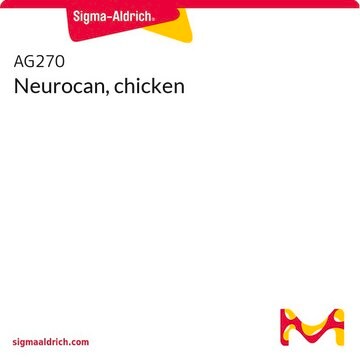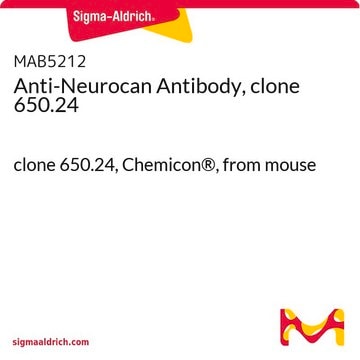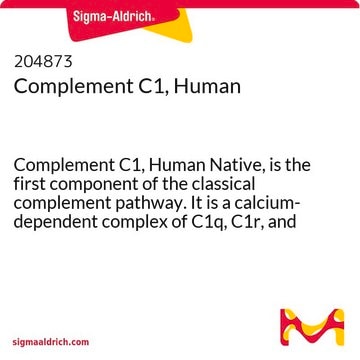ABT1382
Anti-Neurocan
from rabbit
Synonyme(s) :
Neurocan core protein, 245 kDa early postnatal core glycoprotein, Chondroitin sulfate proteoglycan 3
About This Item
Produits recommandés
Source biologique
rabbit
Niveau de qualité
Forme d'anticorps
unpurified
Type de produit anticorps
primary antibodies
Clone
polyclonal
Espèces réactives
rat
Conditionnement
antibody small pack of 25 μL
Technique(s)
immunofluorescence: suitable
Isotype
IgG
Numéro d'accès NCBI
Numéro d'accès UniProt
Conditions d'expédition
ambient
Modification post-traductionnelle de la cible
unmodified
Informations sur le gène
rat ... Ncan(58982)
Description générale
Spécificité
Immunogène
Application
Cell Structure
Qualité
Immunofluorescence Analysis: A 1:500 dilution of this antibody detected Neurocan in E14 embryonic rat brain (frozen sections) and rat E14 neocortex.
Description de la cible
Forme physique
Stockage et stabilité
Handling Recommendations: Upon receipt and prior to removing the cap, centrifuge the vial and gently mix the solution. Aliquot into microcentrifuge tubes and store at -20°C. Avoid repeated freeze/thaw cycles, which may damage IgG and affect product performance.
Autres remarques
Clause de non-responsabilité
Vous ne trouvez pas le bon produit ?
Essayez notre Outil de sélection de produits.
Code de la classe de stockage
12 - Non Combustible Liquids
Classe de danger pour l'eau (WGK)
WGK 1
Certificats d'analyse (COA)
Recherchez un Certificats d'analyse (COA) en saisissant le numéro de lot du produit. Les numéros de lot figurent sur l'étiquette du produit après les mots "Lot" ou "Batch".
Déjà en possession de ce produit ?
Retrouvez la documentation relative aux produits que vous avez récemment achetés dans la Bibliothèque de documents.
Notre équipe de scientifiques dispose d'une expérience dans tous les secteurs de la recherche, notamment en sciences de la vie, science des matériaux, synthèse chimique, chromatographie, analyse et dans de nombreux autres domaines..
Contacter notre Service technique








